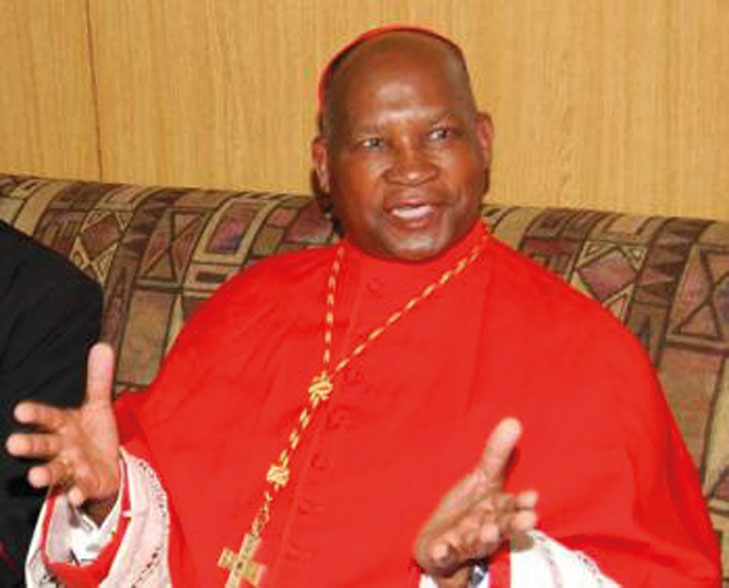 |
His Eminence Medardo Cardinal Joseph Mazombwe, the Archbishop Emeritus of Lusaka Archdiocese passed away in Lusaka’s University Teaching Hospital on August 29 from cancer.
Born on September 24, 1931 at Katete in the Eastern province of Zambia Cardinal Mazombwe was ordained a Catholic priest on 4 September 1960 and become Bishop of Chipata Diocese on February 7, 1971. Between 1996 and 2006, he was the Archbishop of Lusaka until his retirement in 2006.
On November 30, 2010 Catholics in Zambia celebrated one of their proudest moments when the then Holy Father, Pope Benedict XVI created the Emeritus Archbishop of Lusaka, Medardo Joseph Mazombwe, as Zambia’s first indigenous Cardinal, at a public consistory held in St. Peter’s Basilica, at the Vatican.
He returned home to much jubilation and cheer for this achievement. A mass of thanks giving was held at the sprawling Cathedral of the Child Jesus (Pope Square) in Lusaka, a building that is among his most visible pastoral initiatives.
Among the thousands that came out to wish him well on his ordination as Cardinal, few knew that he was ill with cancer. And as his illness progressed Cardinal Mazombwe remained optimistic and courageous, a virtue that inspired many that visited him in the last year of his life. He never gave up his passion for the affairs of the church and the nation.
Over the years he held several senior positions in the local and regional church among the most notable appointment was his tenure as Zambia Episcopal president (1972 – 1975; 1988 – 1990 and 1999 – 2002); and chairman of the regional conferences of the Association of Member Episcopal Conferences in Eastern Africa (A.M.E.C.E.A.) (1979 – 1986).
As Archbishop of Lusaka, Cardinal Mazombwe, was an ardent campaigner for the cancellation of Zambia’s international debt, in the Jubilee 2000 movement.
Due to the overwhelming number of people from the Eastern province who wished to travel to Lusaka for the funeral of the late Cardinal, his body was flown there to Chipata, to accord them the opportunity to pay their last respects.
The late Cardinal Mazombwe was returned to Lusaka and was laid to rest within the grounds of the Cathedral of the Child Jesus September 3 after a requiem mass. |
| |
| |
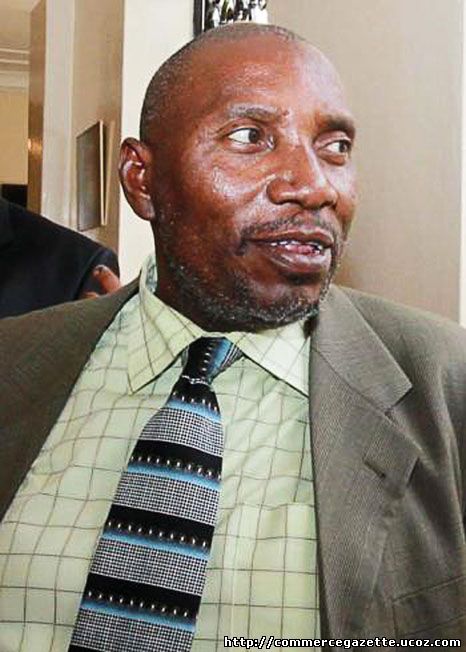 |
Hon. Kennedy Sakeni, 56, died September 5 at UTH after an illness.
He was Patriotic Front (PF) member of Parliament for Mansa central, Information and Broadcasting Services minister and chief government spokesperson prior to his death. He also served as minister of Home Affairs and Luapula province chairperson.
The late Sakeni was a career intelligence officer in the Zambia Security Intelligence Service (ZSIS) before embarking on a political career.
He first served as member of Parliament under the Movement for Multi-Party Democracy (MMD) representing Chifunabuli constituency from 2001 to 2005 before resigning to join the PF in 2010.
Among Sakeni’s many achievements was the impetus to media law reforms and the liberalisation for the media to operate more freely. He granted broadcasting licences to a number of private radio stations recording an impressive growth with almost every province boasting one.
Sakeni was accorded three-days of national mourning and State funeral. He was buried on September 10th in his home village of Samfya district, Luapula province. President Sata and First Lady Christian Kaseba were among hundreds of mourners.
Sakeni is survived his wife, Lillian, and thirteen children.
|
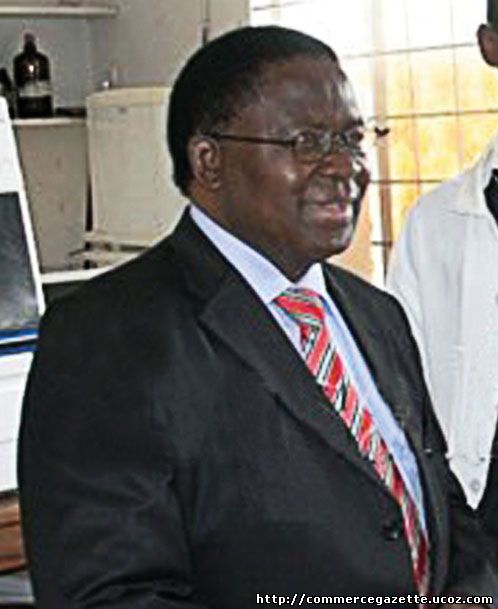 |
Dr Patrick Mwewa Anthony Chikusu, 62, member of Parliament for Katuba constituency and deputy minister of Health, was evacuated for treatment to South Africa after suffering a heart attack December 2, where he died that evening.
He had earlier been admitted to Coptic Hospital in Lusaka before being evacuated for specialist treatment.
Described as a man of humility by fellow MPs, Dr Chikusa will be remembered by his peers as an intellect that joined politics to serve the people.
Dr Chikusa was elected to the national assembly in 2011 as the Movement for Multi-party Democracy (MMD), MP for Katuba constituency. He greatly contributed to the party’s victory in the 2001 and 2006 tripartite elections, and also in the presidential by-election of 2008.
The late minister was one of the opposition lawmakers President Michael Sata appointed as deputy ministers in his government in 2012. Vice president Guy Scott recalled the friction this caused but eventually calm returned.
‘The world’s leading authorities on reconciliation, co-operation and compromise are the Africans. Dr Chikusu was one of the compromisers, one of the reconcilers to make life better and leave behind bad parts of the past,’ Scott said.
He was an accomplished academic of international repute who contributed in the field of research particularly in pharmacy, his area of specialization.
Between 2004 and 2005 when Zambia grappled with how traditional herbal medicines could contribution to the HIV/AIDS treatment, Dr Chikusu was appointed by the government to be the principal investigator on the herbal remedy claims made by the Sondashi, Mailacin and Mayeyanin formulations. Using the World Health Organisation (WHO) guidelines, he, together with colleagues made conclusions which are internationally recognised.
The late Dr Chikusu obtained a bachelor’s degree in Pharmacy (1974), from University of Ife in Nigeria. He holds a master of Science degree in Pharmacy (1979) Leeds University, United Kingdom and a doctor of Philosophy (PHD) Strathclyde University (1983) Glasgow, United Kingdom.
Dr Chikusa is survived by a wife, Edah, son Dr Clarence Chikusu and two daughters Dorothy and Fiona
|
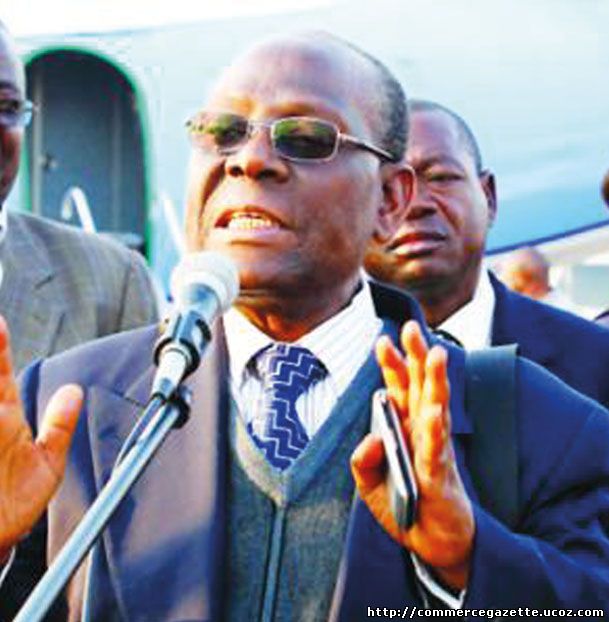 |
Benjamin Yorum Mwila, 70, who was former Defense minister from 1991 to 1997 in the late president Fredrick Chiluba’s first cabinet in the Movement for Multi-Party Democracy (MMD), died at a hospital in South Africa on August 17.
He also served as minister of Energy and Water Development.
Mwila, who was nicknamed B.Y., was first elected to the National Assembly as MP for Luanshya constituency in 1991.
In 2000, MMD was at a crossroad with Chiluba barred from seeking a third term as president due to the constitutional term limits, BY openly considered a bid for the presidential candidacy and drew criticism from fellow party members.
Undaunted by the critic B.Y. left MMD and founded the Zambia Republican Party to fulfill his ambition of reaching the highest levels of governance. His bid failed as he got approximately 4.84% of the vote.
In the aftermath, he continued working in opposition and in 2006 his party merged with several other political parties to form the National Democratic Focus (NDF). He was elected back to Parliament as MP for the Nchelenge constituency. Ever concentrating on the mechanics and machinations of politics, B.Y. returned to MMD in 2011 with the hope of re-contesting his Nchelenge seat but was defeated.
For the past two years until his death B.Y. remained under the political radar.
Conveying his condolences, President Michael Sata expressed sadness at the passing of B.Y. and commended him as proficient entrepreneur who exceled in his business and political career.
‘Our departed colleague served this country with brilliance and vigilance in the many national tasks he executed.’
Following a funeral service at the Cathedral of the Child Jesus in Lusaka, B.Y. was buried at Leopard Hill Memorial Park on August 22.
|
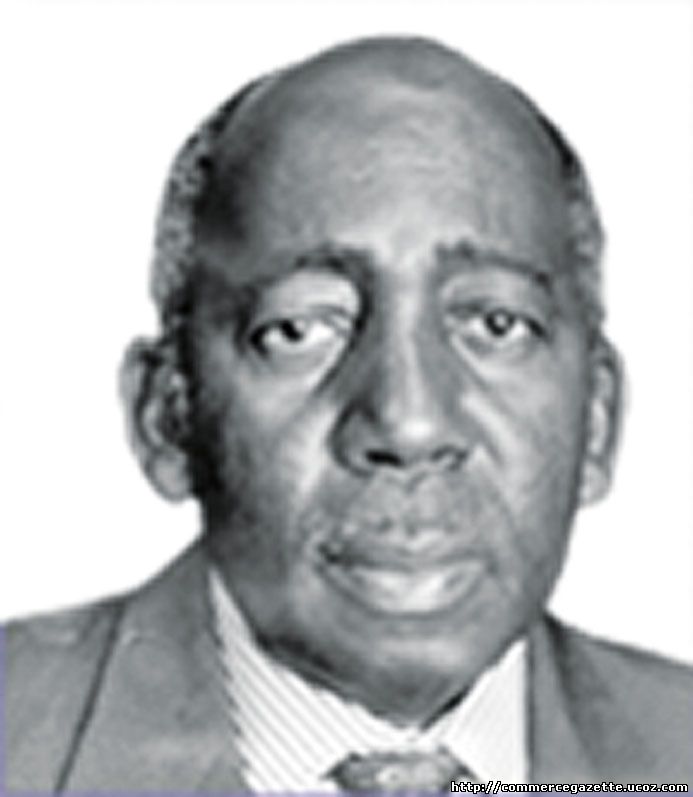 |
Dominic Mulaisho, 79, former Bank of Zambia (BoZ) governor died in Lusaka July 2 at his home. He had shown no sign of illness and collapsed while reading a book.
Mulaisho served under Dr Kenneth David Kaunda’s administration in the first republic.
Besides being BoZ’s tenth central bank governor from 1992 to 1995, he held several senior portifolios including as economic advisor to the former president - Dr Kaunda, he was also a World Bank consultant and permanent secretary in the Ministry of Mines among others.
Mulaisho was born in 1933 in Feira, graduated from the University College of Rhodesia and Nyasaland in what is now Zimbabwe.
|
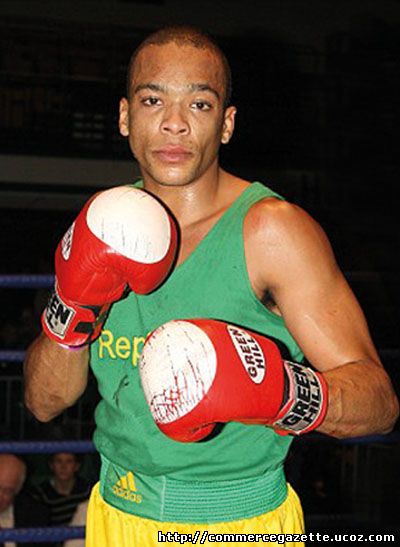 |
Michael Norgrove, 31, a Zambian born professional light-middleweight boxer from Woodford Green, London died on April 6 several days after collapsing in the ring on 31 March.
He was treated for bleeding on the brain following the bout against Sedgley’s Tom Bowen at The Ring in Blackfriars, south London. Norgrove was the first boxer to die after a fight in the UK for 18 years. This was his first fight after a two-year break from the sport.
Nicknamed the ‘Zambesi Hitman’, probably after the Zambezi river that runs through Zambia, Norgrove had an unbeaten professional record and was yet to make a name in the country of his birth. Born in Kabwe, Norgrove was the son of a British expatriate who worked for Zambian Railways. The family left Zambia at the end of his father’s contract when Norgrove was seven.
Norgrove was a sparring partner of boxer James DeGale, who won a gold medal in the Beijing Olympic Games.
|
|